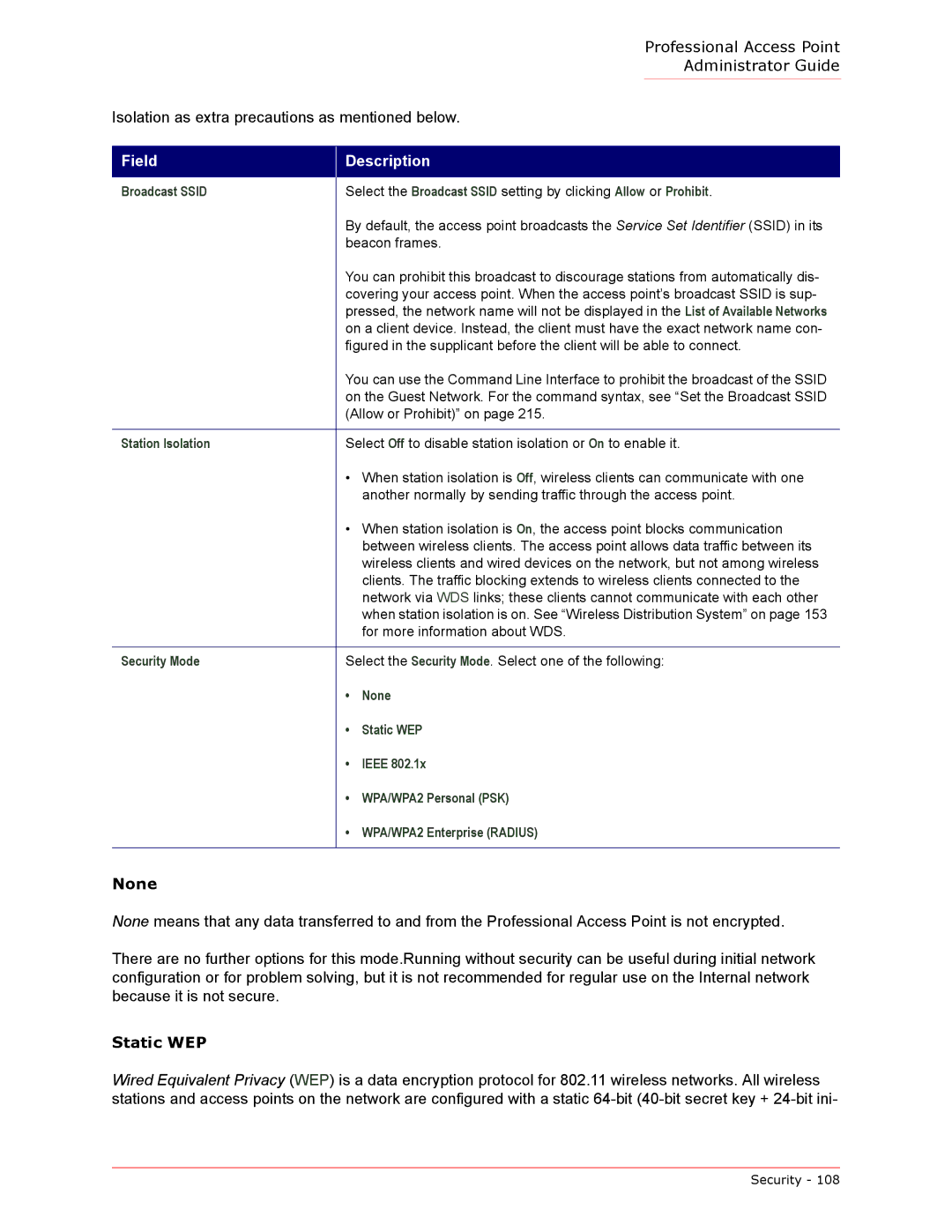
Professional Access Point
Administrator Guide
Isolation as extra precautions as mentioned below.
Field
Description
Broadcast SSID | Select the Broadcast SSID setting by clicking Allow or Prohibit. | |
| By default, the access point broadcasts the Service Set Identifier (SSID) in its | |
| beacon frames. | |
| You can prohibit this broadcast to discourage stations from automatically dis- | |
| covering your access point. When the access point’s broadcast SSID is sup- | |
| pressed, the network name will not be displayed in the List of Available Networks | |
| on a client device. Instead, the client must have the exact network name con- | |
| figured in the supplicant before the client will be able to connect. | |
| You can use the Command Line Interface to prohibit the broadcast of the SSID | |
| on the Guest Network. For the command syntax, see “Set the Broadcast SSID | |
| (Allow or Prohibit)” on page 215. | |
|
| |
Station Isolation | Select Off to disable station isolation or On to enable it. | |
| • | When station isolation is Off, wireless clients can communicate with one |
|
| another normally by sending traffic through the access point. |
| • | When station isolation is On, the access point blocks communication |
|
| between wireless clients. The access point allows data traffic between its |
|
| wireless clients and wired devices on the network, but not among wireless |
|
| clients. The traffic blocking extends to wireless clients connected to the |
|
| network via WDS links; these clients cannot communicate with each other |
|
| when station isolation is on. See “Wireless Distribution System” on page 153 |
|
| for more information about WDS. |
|
| |
Security Mode | Select the Security Mode. Select one of the following: | |
| • | None |
| • | Static WEP |
| • | IEEE 802.1x |
| • | WPA/WPA2 Personal (PSK) |
| • | WPA/WPA2 Enterprise (RADIUS) |
|
|
|
None
None means that any data transferred to and from the Professional Access Point is not encrypted.
There are no further options for this mode.Running without security can be useful during initial network configuration or for problem solving, but it is not recommended for regular use on the Internal network because it is not secure.
Static WEP
Wired Equivalent Privacy (WEP) is a data encryption protocol for 802.11 wireless networks. All wireless stations and access points on the network are configured with a static
Security - 108
